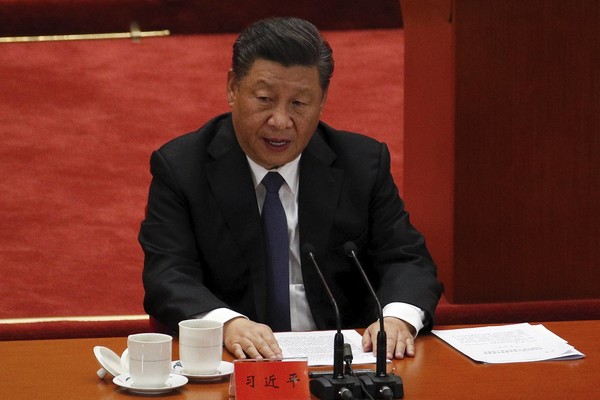In George Orwell’s Nineteen Eighty-Four, the leaders of Oceania continuously rewrite the past to match the current political agenda of the government. History is revised so that Oceania has been always at war with whichever superstate they are currently enemies with — and the public mindlessly accepts it as the truth. Like many aspects of dystopian novels, such distortion of history seems like sufferings of the far future, but in reality, it is as prevalent and as menacing in the present.
Recently, when RM, the leader of BTS, recognized the shared pain of South Korea and the US during the Korean War, people in China took offense, with many complaining that he failed to mention the sacrifice of Chinese soldiers. Such an intense reaction to an innocuous comment may be a result of nationalism, but it primarily stems from China’s attempt to rewrite the Korean war. On October 23, Chinese President Xi Jinping gave a speech commemorating the 70th anniversary of China’s entry to the Korean War. In his speech, Xi claimed that China “won” the Korean War, and even more controversially, framed the US as the “invader”. The latter statement contradicts the consensus of international academics and the UN Security Council resolution that it was North Korea that first invaded South Korea, initiating the Korean War.

Xi’s speech, along with China’s growing number of Korean War films, represents China’s half-century-long agenda of “kang mei yuan chao” (resist the US, help North Korea) that is being once again propagated amidst intensifying China-US tensions. For Beijing, emphasizing and distorting certain aspects of the Korean War not only stirs nationalism among the populace but also signals to the US that China is now ready for any conflict between the two superpowers. Such a situation epitomizes the unpleasant intermingling of politics and history, and how a government involves itself in historical negationism in pursuit of a particular political gain.
China is not the only country to have used historical negationism as a weapon. The famous story of the Polish cavalry charging against Nazi tanks is in fact made up. The myth stemmed from Nazi propaganda to degrade the Polish army as weak and gullible and continues to downplay Poland’s contributions during World War II. The Japanese government has undertaken textbook reforms deliberately omitting or minimizing the war crimes of imperialist Japan. South Korea is no exception. The newly reformed textbooks remain controversial as they are criticized for downplaying North Korean atrocities, such as by completely omitting North Korea’s bombardment of Yeonpyeong in 2010.
You may question the importance of this discussion: “Do I, as an average person living an average life, have to burden myself with the intricacies of the experts and the powerful?” Sure, you will be completely fine without ever knowing about it. But the importance of recognizing such a situation lies in that history is often perceived to be an objective recollection of what happened, when in reality, it is open to interpretation and exploitation from outside forces. Because we take historical “facts” as “truths”, the decisions we make from those facts will be under the illusion of being irrefutably correct. This resulted in the Chinese fans who accused BTS for a reason that sounds frankly outlandish in my perspective. On the other hand, my claims and ideas on the same topic will sound as bizarre to the other side.
Even if we recognize the importance of historical truth, it still remains unclear as to how we as individuals should approach the issue. While no one is asking us to be Winston from Nineteen Eighty-Four, it is nevertheless ideal to look in the direction of truth. This also means acknowledging that some of our understanding of history has already been distorted. While many focus on working to influence the future, ironically, working to preserve the past will become just as crucial. Although it may seem counterintuitive, history is fallible and should not be taken as the absolute truth. As individuals, we should utilize the abundance of information available to fight the invisible pen rewriting what has happened.

